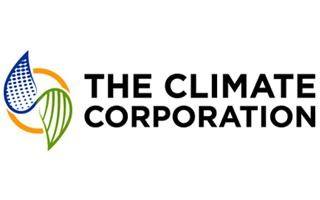The $1 Billion Agritech Company

How The Climate Corporation leveraged big data to revolutionize an industry
Weather can mean life or death for farmers – sometimes literally. Crops wiped out by draught, combined with increasing input prices, stagnant crop prices and high debt have led to thousands of suicides in India. The US government recognizes this risk and provides federal crop insurance, but that only offers partial protection. Enter the Climate Corporation with big data and machine learning to save the day.
Traditional weather insurance uses weather stations at airports to track conditions. The farmer’s field may be 20 miles away and experience different conditions, and the farmer might not get compensated for its unique weather events. The Climate Corporation, founded by ex-Googlers David Friedberg and Siraj Khaliq, uses big data to solve this problem and create value in three steps:
- Gather hyper-local data: The Company built and placed equipment to gather data from each field, including current moisture and 24-hour precipitation levels. They’ve already collected 10 million daily environmental observations;
- Build agronomic and weather simulation models: The Company built complex models using U.S. Department of Agriculture statistics and the data they had gathered. The models could simulate past weather conditions and predict the likelihood of future weather events such as drought;
- Leverage machine learning: The Company used algorithms to optimize models over time by feeding the model new data.
Thanks to these steps, The Climate Corporation was able to outperform the U.S. Department of Agriculture National Agricultural Statistics Service in its yield predictions.
Building the right team also had a significant role in value creation at The Climate Corporation. Individuals with PhDs in applied physics and statistics worked together with experts in traditional large-scale computer projects. Jimi Crawford, SVP of Science and Engineering, emphasized the advantage of the Company’s roots: “Our largest (former) employer […] is Google, so we know about manipulating large amounts of data.” Meetings held in rooms named “Edison” and “Doppler” and the casual dress code reflected the company culture built around science and technology.
Armed with the advantages of vast data, machine learning, the right team and a strong company culture, The Climate Corporation captured value by offering custom insurance policies to farmers. Farmers would register their fields online, pay $30/acre in premiums (~3% of revenue), and receive a ~10x payout automatically if excessive rain or drought occurred, as measured by The Climate Corporation’s own equipment. Founder Dave Friedberg estimated the global market to be around $3 trillion.
From 2007 to 2012, The Climate Corporation raised $109 million from 18 investors including Google Ventures to support its rapid expansion. The Company managed to onboard thousands of farmers across 10 million acres. In 2013, biotech company Monsanto acquired the Company for $1.1 billion, hoping to use its products to optimize farming around the world. The Company has now pivoted to selling field-level insights directly to farmers through its suite of FieldView products. For example, its Climate FieldView Pro includes a tool that monitors nitrogen levels and uses historical data and machine learning to forecast whether the field will have sufficient nitrogen to hit yield targets. The product also includes The Field Health Advisor, which tracks biomass to indicate field health. For example, below are two vegetative maps from the product. Comparing current image on the right with historical image on the left, a farmer realized that typically productive (dark green) areas were underperforming. Upon examining the exact location, he discovered his corn crops had rootworm and applied insecticide to save his crop. Using Climate FieldView Pro, the farmer was able to address the issue before it became a field-wide problem.
The challenges ahead for The Climate Corporation are integration with Monsanto and preservation of its start-up, tech-style culture. Public perception of Monsanto as an “evil” company will pose issues for employee motivation. CEO David Friedberg was well aware of the issue and sent an explanation letter to company employees: “When I shared the news with my dad recently, his first reaction was “Monsanto?! The most evil company in the world?! I thought you were trying to make the world a BETTER place?”. He defended Monsanto as a company with “hugely impactful technology” that is misunderstood. Time will tell whether employees will agree, stay motivated, and integrate into Monsanto.




Great post, Damla. Thanks!
Curious what’s the best value capture mechanism with the new Climate FieldView technology. I’d expect the value delivered to be quite different across farmers (for example, if a farmer is already pretty sophisticated), so capturing it would pose a challenge. In addition, the act of convincing the farmer of the technology’s benefits might be difficult. Therefore, one approach would be to for Mosanto to buy the fields, rather than offer a service. This is a much more asset-heavy model, which isn’t ideal. However, it does enable Mosanto to capture all the value.
Really interesting post! I can’t blame the CEO’s dad for his Monsanto reaction. They certainly do have a terrible reputation, even if you know next to nothing about farming. I would certainly have a tough time keeping the same motivation I had to help farmers after hearing who the acquirer was. I’m definitely interested to see what they end up using the technology for and how they work with farmers. I wonder if they can figure out a way to reduce water usage, particularly in California and other drought-prone areas.